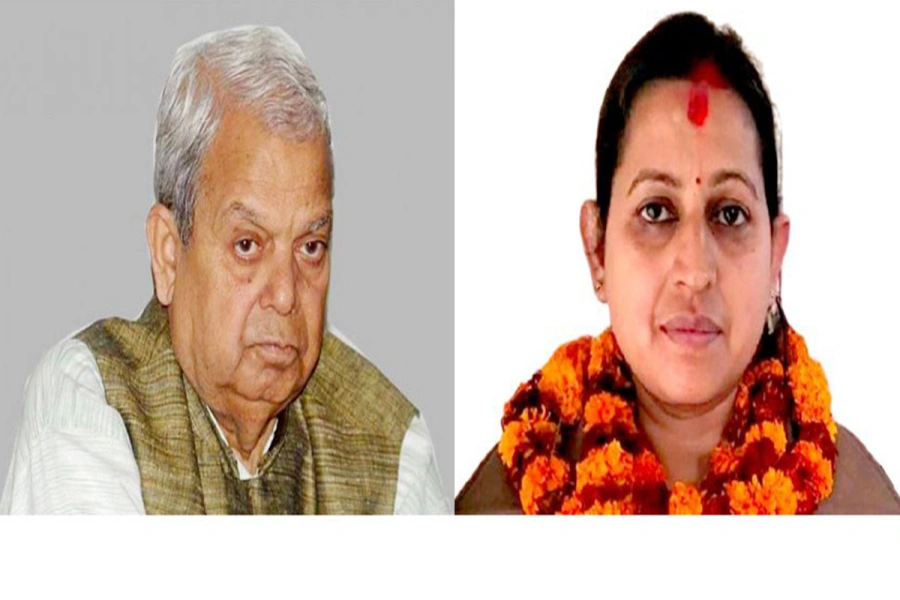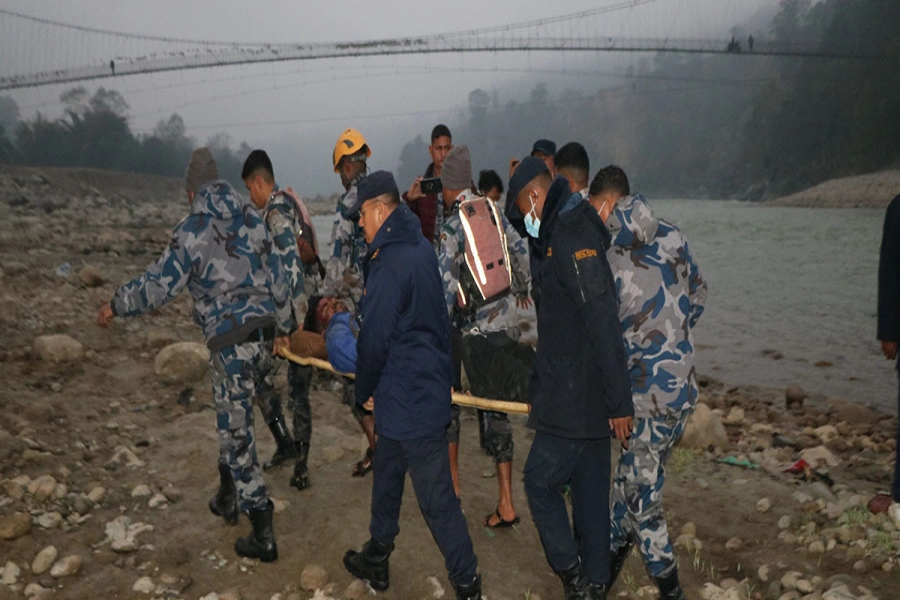The bombast of newly-minted novelists and self-published poets notwithstanding, the literary scene in Nepal is grim
True to its name, Pokhara is all about water. The city by the lakeside receives more rainfall on an average than any other major settlement of Nepal. The mountain that towers over the valley is aptly called Fish Tail. On clear days, the snowy peak does indeed look like a divine vertebrate of aquatic variety with its head underneath even as its tail wriggles in the sky to touch heavens.
The other element that strikes a visitor as soon as she lands in Pokhara is the brightness of the sun. It’s the Himalayas that does the magic as sun’s rays glisten upon snowy peaks. The narrowness of the valley could be another factor, which creates the illusion of light being focused on the dale. Educationist Kedar Mathema says that the first thing that always hits him when he enters the valley is its sparkling dazzle—the warm glow of divine serenity that only the sunlight can bestow upon a place.
The earthen beds of most vales are naturally fertile as nutrients washed down from surrounding hills are deposited below at the floodplains. Thick vegetation along the slopes makes Pokhara green for most of the year. The mist wafting out of water bodies mixes with the aroma of woods to make nostrils wake up and take notice. For littérateur Dhruva Chandra Gautam, the appeal of the valley lies in its eternal freshness.
Writer Khagendra Sangraula can hear calls that mountains make even at the dead of the night, but his ears are more attuned to listening stories at wayside shops dispensing tea or more potent brews. He likes to take early morning hikes and exchange notes late into the evening with fellow wordsmiths.
Despite rapid urbanization over the last decade, Pokhara still retains much of its magic. It may not last long. Soon the valley will have an international airport where jetliners from across the Himalayas will be bringing in hordes of tourists with selfie-sticks.
Entrepreneurs have already begun to salivate. There are talks of hosting three million tourists a year. A building boom seems to have hit the town. Multi-storied structures are being erected upon loose limestone deposits. The valley is headed the Kathmandu way with more cars, bigger shopping malls and organic tenements that invariably spring up to keep the city serviced.
Alternatives to unchecked urban sprawl have failed to take off. The vision of creating educational centers of excellence to attract affluent seekers of knowledge from far and wide didn’t materialize. The medical tourism pipe dream is still being bandied about, but despite a medical college around, the well-off of the town prefer to travel to the capital city for routine check-ups.
Dystopian nightmares, however, may not come to a pass. Innovative Pokharelis keep coming up with fresh concepts every few years. Building a film-city is still on the cards.
Some continue to talk about turning it into a town of museums. The plan of multiple art galleries that will someday host creators of the world refuses to die. Meditation town may sound contradiction in terms, but who knows what the future holds? Preponderance of artificial intelligence in metropolitan cities may force more and more information workers to seek salvation in the lap of nature. At first glance, holding annual literature festival appears to be one of those whacky ideas whose time has not yet come. But it’s in the nature of seemingly impossible dreams to lure youthful energies.
Prime Life, Union Life and Gurans Life ink a merger agreement

Lit fest
Ajit and Niraj of Bookworm Foundation make a strange pair. The elder one of the duo is sinewy with a crop of prematurely grey hairs. He manages to maintain a calm exterior and displays a laid-back attitude to hide his worries. The younger one looks slightly chubby but is charged with unstoppable energy. His enthusiasm bubbles over his face. Together, they had come up with the idea of a publishing venture in the age of the internet, opened a bookshop instead of a pub in Kathmandu, and then had begun to host what had looked like an adventure—an annual lit fest!
The bombast of newly-minted novelists and self-published poets notwithstanding, the literary scene in Nepal is quite grim. Youngsters prefer to read and write short Tweets. Facebook posts have become the favored medium of expression for the middle-class. The chattering classes think that wisdom can be gleaned from headlines of internet portals. Op-ed pages of broadsheets are considered to be serious reading. And television is always there to provide constant stimulation.
Literature requires a receptive mind, not a brain bursting with prejudice and looking for confirmation of one’s own biases. Enter the idea of lit fest: Reinvention of the oral tradition to share juicy tit-bits and hear known names tell their stories in easily digestible slices. Most literary festivals emphasize the second part of the experience rather than the first.
Ajit and Niraj had correctly gauged the mood of the market six years ago when they thought about bringing the culture of lit fest to Kathmandu. The attempt to turn writers into celebrities had become an essential element of keeping publishing business alive. The decision to move the event to Pokhara, however, was audacious.
The logistics of holding a major event outside of Kathmandu continue to be daunting. As in most developing countries, only the capital city has enough physical, infrastructural or intellectual capital to invest in a showcase affair. Since the social elite too tend to congregate around poles of political and economic power, most of them eventually end up shifting base to the unitary center. Whatever be the nature of the event, if it needs luminaries, hosts have to transport them from Kathmandu. Pokhara has excellent lodging places, but it is also the most expensive city of Nepal.
Drawing up a guest-list and following through constant communication requires commitment of extraordinary order. Sponsors for literary events are hard to get. It’s expensive to fly in international celebrities, which is a necessary condition of ensuring enthusiastic home participation. National figures with large base of followers are equally hard to lure. Getting celebrities to the venue on time is an achievement in itself.
Without giant-sized egos, ambitions don’t take wings and fly. Even by the standards of high achievers, artists and littérateurs are unusually obsessed with self-importance.
Perhaps they take their role of being creators of alternative life experiences rather too seriously. Probably there is also an element of doubt in their own abilities that makes them look for comparison even when it’s wholly unnecessary. Managing a gathering of wordsmiths requires the mastery of art and craft of messaging bruised egos of insecure individuals. It requires a team of youthful enthusiasts with a penchant for bright smiles that are often found only on college campuses with sports facilities—a rarity in Nepal.
How the Bookworm manages to gather such a team year after year is a mystery.
Heard words
Most creative enterprises require solitude where the mind can listen to the heart speak and the brain can then find ways to communicate the experience through combination of words, strokes of brush, constants and variables of a beautiful mathematical equation or notes to make music. Even team enterprises of architecture and orchestra are first conceived and designed in the mind of an individual. When Socrates decreed that an unexamined life was not worth living, he probably had a creator in mind, who was constantly oscillating between supreme self-confidence and deep fears of something that always remains unknown. To examine it is to realize that the only thing worth knowing is that nothing can ever be known fully or truly. In order to cope, human beings have to invent and tell stories.
No matter what the medium, the necessity of telling tales shall remain. If and when robots acquire artificial intelligence, begin to think for themselves and learn to independently communicate, they too will feel the need to hear stories so that they can make sense of constantly changing realties all around. There was literature much before alphabets were created or stone tablets invented. Expressions were drawn on cave walls, tree trunks or the ground with the help of sticks, stones and charcoal. Music was made even before early humans acquired the skill to tighten and strike strings. Emotions find ways of expression.
Much fault can be found in the organization of literary festivals. But they do serve at least one useful purpose: That of being platforms to hear the sound of minds talking rather than thinking.







































